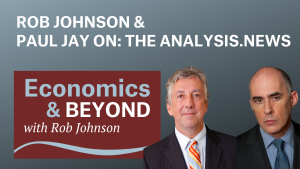Justin Fox in his Harvard Business Review blog brings to our attention the dangers of false certainty and how representation of data can contribute to, or dispel the false certainty of statistical and econometric technique.
He highlights the research of Emre Soyer and Robin Hogarth and particularly their paper entitled “The Illusion of Predictability: How Regression Statistics Mislead Experts.” (The paper is attached at end of this post.)
“My concern,” Hogarth recently said while presenting the results, “is that when reading economics journal articles you get the impression that the world is much more predictable than it is.”
Fox highlights some of the remedies for fighting the illusion of false precision, including the Bank of England’s use of “Fan Charts” and other visual representations of data.
Selling false certainty would seemingly be a limited market. Bad guidance would be weeded out by the false results, as the story goes. I am not so sure. The demand for relief from anxiety breeds an oversupply of alleged authority. The product being sold is not insight or truth. The product being sold is a service that helps you feel better when you are nervous. Snake oil salesman, according to George Akerlof and Robert Shiller, in their book Animal Spirits, can fill this void temporarily. And then they are despised when their story is shown to be false. But the yearning remains and demagoguery of various forms rushes to fill the void.
Riding behind the shield of “science” rather than engaging in other forms of rhetorical persuasion is one way to appear certain. Intimidation through arcane methodology is another way to remove the debate. Taking people into dark lacunae of technique and ridiculing them or bamboozling them with this or that complex representation of a simple argument often leads to deference. We have all seen these rituals in action. They are the stock in trade of what Robin Hogarth calls, “The Arrogant People,” a term he fastens with particular focus to the economics profession.
Or as the blogger Borepatch reminds us:
1. “If anything else, please remember this when someone says ‘The science is settled.’ Unambiguous settled science usually means someone wants to convince you do something you don’t want to do, and they’ve done more research than you.”
2. “Remember, the Scientific Method isn’t replacing a Falsehood with a Truth. It’s replacing a Falsehood with a more subtle Falsehood.”
I have nothing against technique in service of illumination. But science and formalism are not the same. The key word here is method. Method is no substitute for insight and is not sufficient to persuade.






